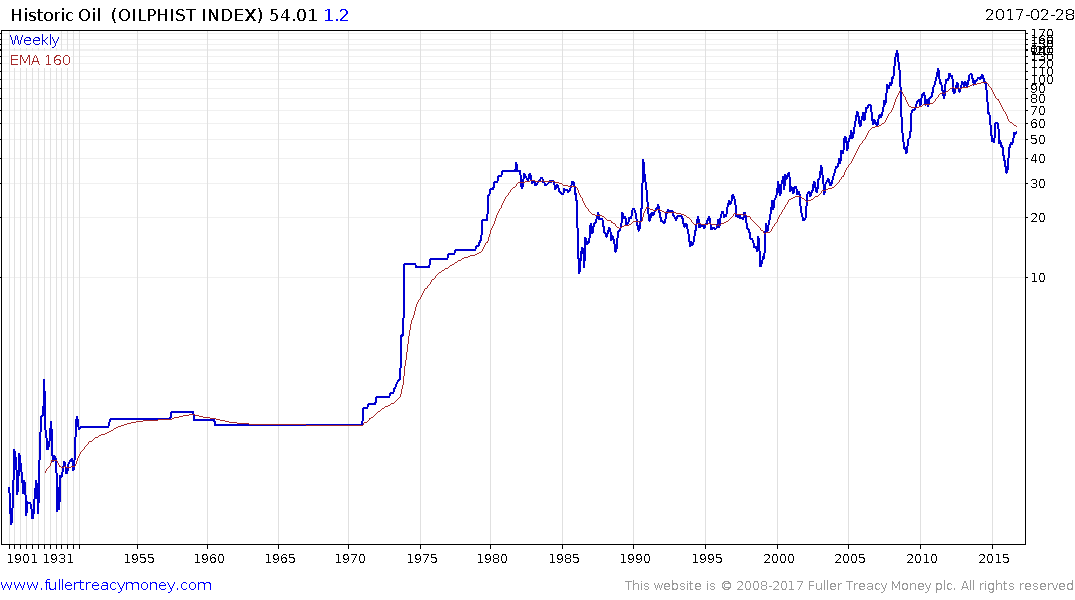Energy Stat: Are Electric and Autonomous Vehicles Heading Down the Road to Peak Oil Demand?
Thanks to a subscriber for this fascinating report by Pavel Mulchanov for Raymond James which may be of interest. Here is a section:
There is no law of nature that dictates that global oil demand must eventually reach a peak and then begin an irreversible decline. The well-known “law” of Hubbert’s Peak applies to supply, not demand, and the advent of modern technology (fracking, horizontal drilling, enhanced recovery, etc.) has led to a fundamental rethink of whether oil supply will peak after all. In this context, we see comments such as the one from Shell, suggesting that peak demand will come first, rendering peak supply a moot point.
There is no direct historical precedent for worldwide demand for a major energy commodity to peak on a sustained basis. (Sorry, whale oil doesn’t count.) Despite all of the regulatory and other headwinds, for example, global consumption of coal is still growing. But it is true that there is precedent for national and even regional demand to peak. Coal demand in Europe peaked in the 1960s, and has since fallen to substantially lower levels. Oil demand in Japan peaked in the 1990s. Oil demand in Europe peaked more recently, in 2006, one year after the U.S. By definition, a peak is something that can only be known in retrospect, but with a decade having passed, it seems abundantly clear that European oil demand will never get back to its pre-2006 levels. With regard to the U.S., the situation is less clear-cut because of the demand recovery in recent years, but 2005 may well be the all-time peak. The theory of peak global oil demand holds that when enough parts of the world reach a peak, a global peak will result, because the few places still growing will not be enough to offset the decliners. In this sense, the theory is conceptually valid. Thus, we would not argue with the notion that peak oil demand is a matter of time. The real question is: how much time?
Here is a link to the full report.
I had not previously seen the statistics about peak demand for Europe and Japan so I found this report enlightening and commend it to subscribers. Peak demand is an important theme and explains why Saudi Arabia guards its Asian markets so jealously; offering discounts again as recently as two weeks ago. Asia and Africa represent the two big growth markets for international oil products just as they represent the major growth areas for coal consumption.
The combined acceleration in the pace of technological innovation and emerging markets’ rate of economic growth suggests they will reach peak oil demand quicker than it took their developed market competitors. I suspect the reason 2040 is offered as a reasonable timeframe is because it is about 20 years from now but also because the global birth rate has peaked and global population growth will level out by 2040 or might even be declining.
My guess is peak demand will be somewhere in the early 2030s because the pace at which battery density doubles is about every five years. The car that can go 250 miles on a charge today should, at least theoretically, be able to travel 1000 miles by 2027. That removes range anxiety from the equation and economies of scale should have brought down prices by then too.
This article suggests oil companies like royal Dutch Shell are hedging their bets by getting into developing offshore wind farms. Technological innovation is hard at work in this sector too. Here is a section:
Cost cuts for offshore wind are helping the technology start to compete with traditional forms of energy, especially nuclear, according to Bloomberg New Energy Finance. Current projects entering operation are delivering power at about half the price of farms finished in 2012 thanks to larger turbines and more competition. Costs could fall another 26 percent by 2035, according to the London-based researcher.

This very long-term chart of the oil price, on a log scale, depicts generational long bull and bear markets. If history rhymes and we have no reason to suspect it won’t, then oil is likely to range for a prolonged period regardless of the peak demand argument.
Back to top


